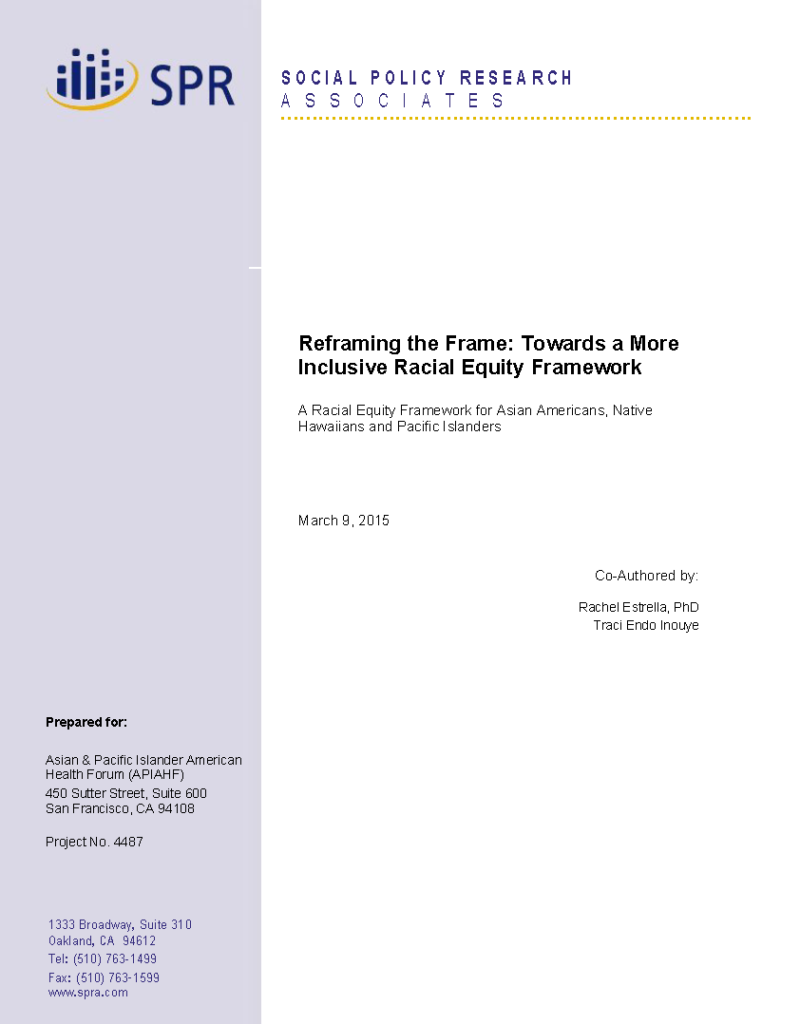Representing the fastest growing racial group at almost 19 million, Asian Americans, Native Hawaiians and Pacific Islanders (AAs and NHPIs) currently comprise approximately 6% of the U.S. population. While their growing presence adds to the rich multicultural landscape of the country, the stark reality is that, in many communities across the country, AAs and NHPIs also face significant systemic barriers that lead to growing inequities in terms of educational, economic and health outcomes for this population.
In response to this challenge, the Asian & Pacific Islander American Health Forum (APIAHF) –with Social Policy Research Associates (SPR) as the evaluation and learning partner—launched a two‐year “Racial Equity Initiative” (REI). Funded from within the W. K. Kellogg Foundation’s racial equity portfolio, five local collaboratives were supported from across the country to advance policy, systems, and environmental changes that address racial inequities facing their respective AA and NHPI communities.
Given decades of work in their communities, each funded REI partner knew intuitively how to approach and navigate the challenges of addressing educational, health and economic disparities facing AA and NHPIs. At the same time, during early evaluation interviews, it was clear
that partners were struggling with sense‐making around “racial equity” as a framework for their work—and in some cases, a sense of disconnect
with some of the racial equity/healing terminology introduced within their grant. APIAHF staff shared this was not surprising, since on the
national front, racial equity discussions have not traditionally been inclusive of AA and NHPIs. Staff explained, “Our histories, experiences
and struggles in America are just beginning to gain visibility within discussions about racism and racial equity. Further, because terms like ‘racial healing’ and ‘racial equity’ are not in our communities’ lexicon, it has made it challenging for AA and NHPIs to find the ‘on ramp’ into these discussions.”
Recognizing the challenge and opportunity presenting itself, the APIAHF made a decision to invest in a process by which REI partners could collectively make meaning of racial equity and healing within the AA and NHPI context, and ultimately surface an AA and NHPI Racial Equity framework—not externally imposed upon the community—but organically derived from the unique AA and NHPI experience. The
framework that culminated from this process is the focus of this paper.

